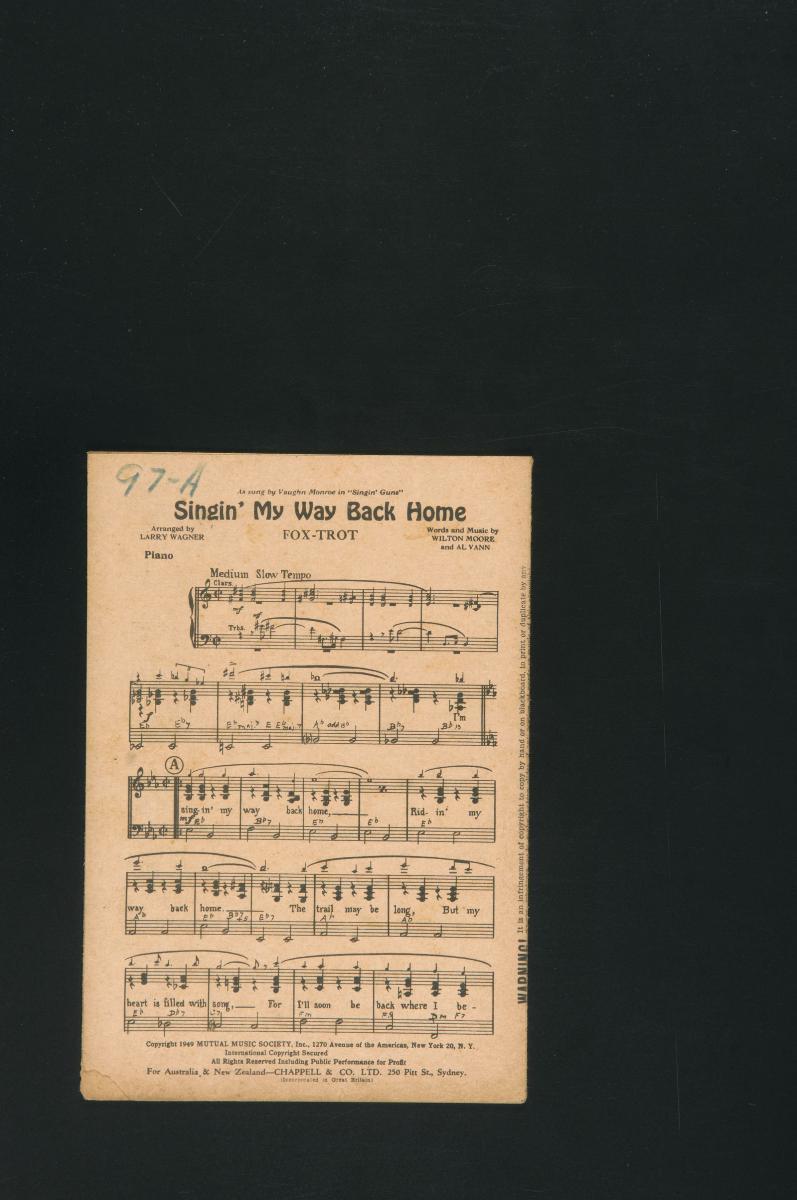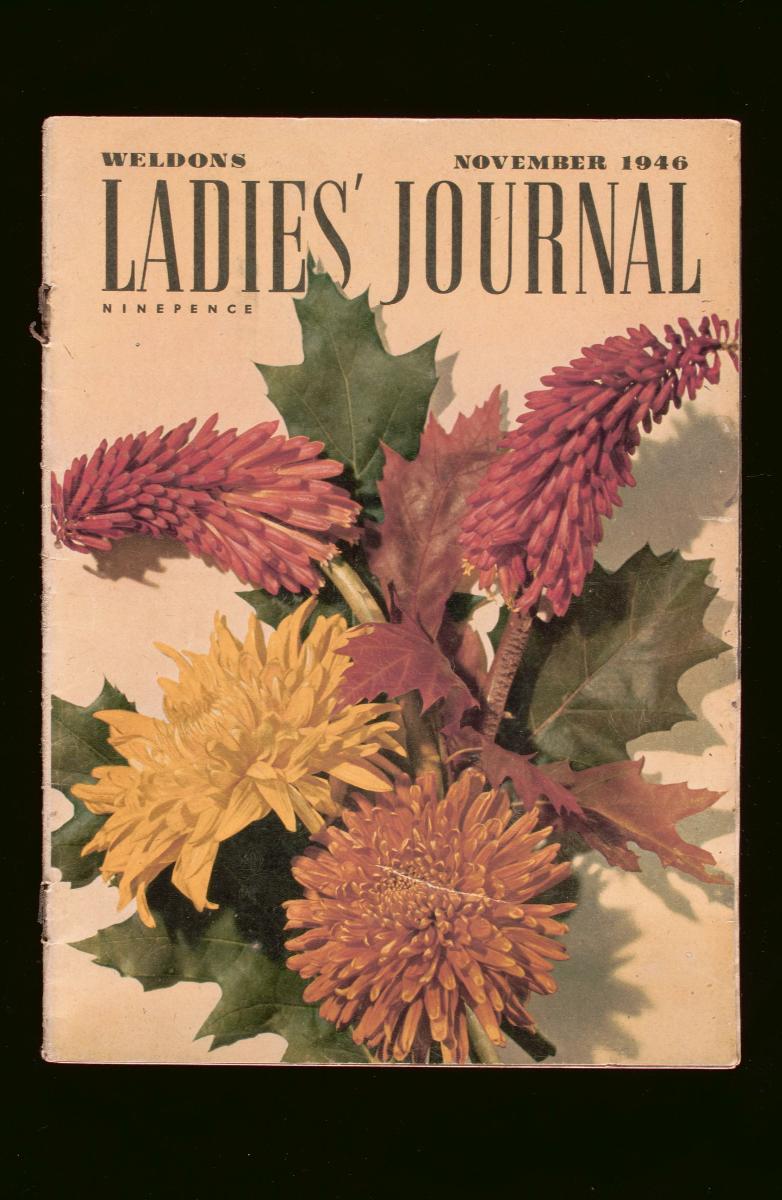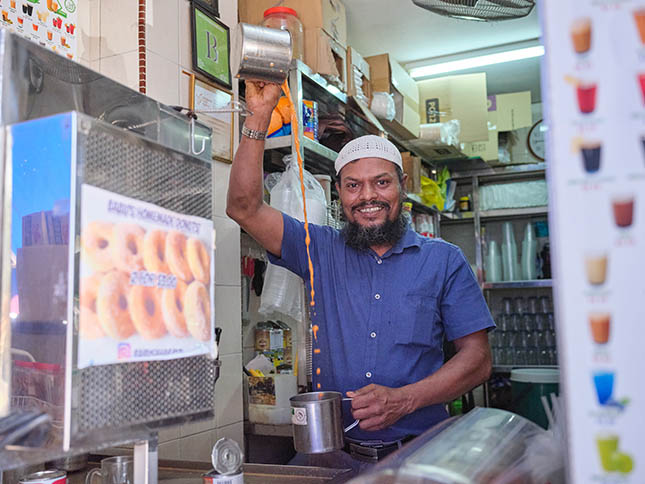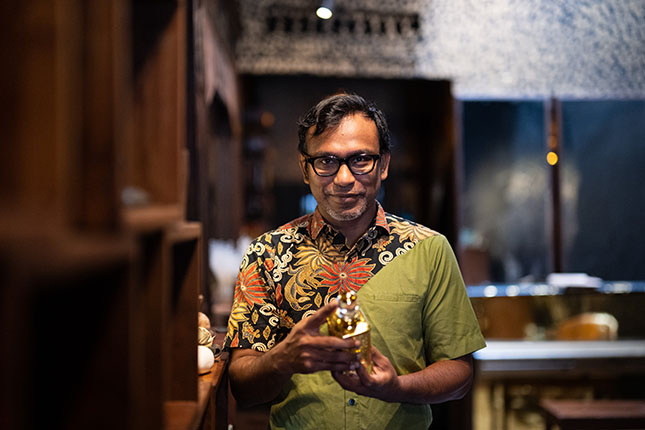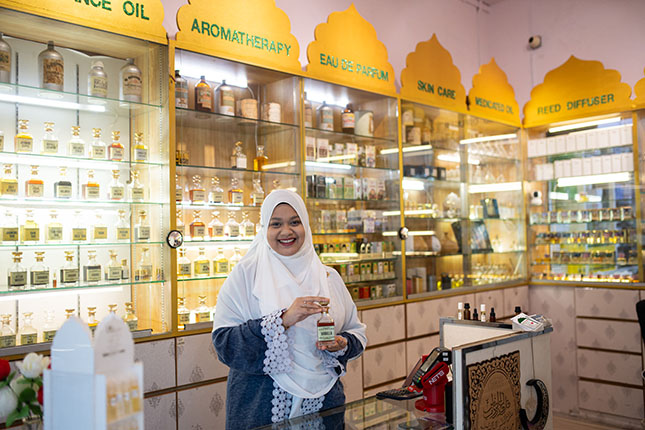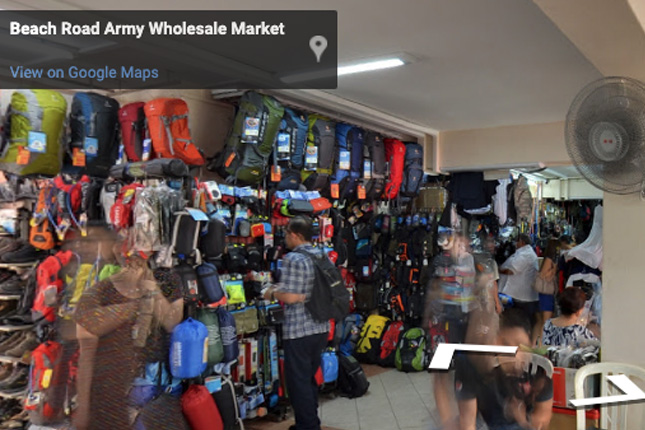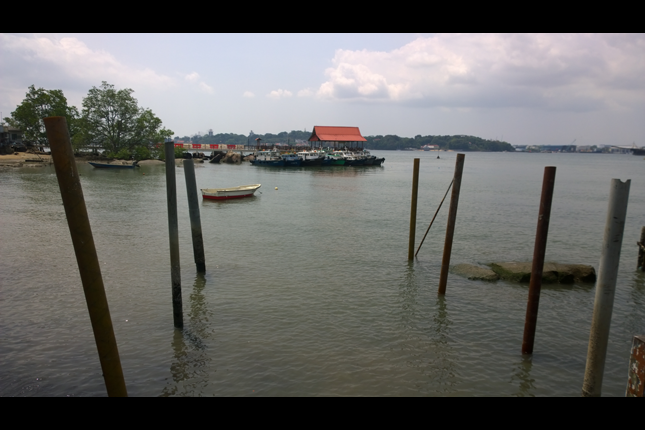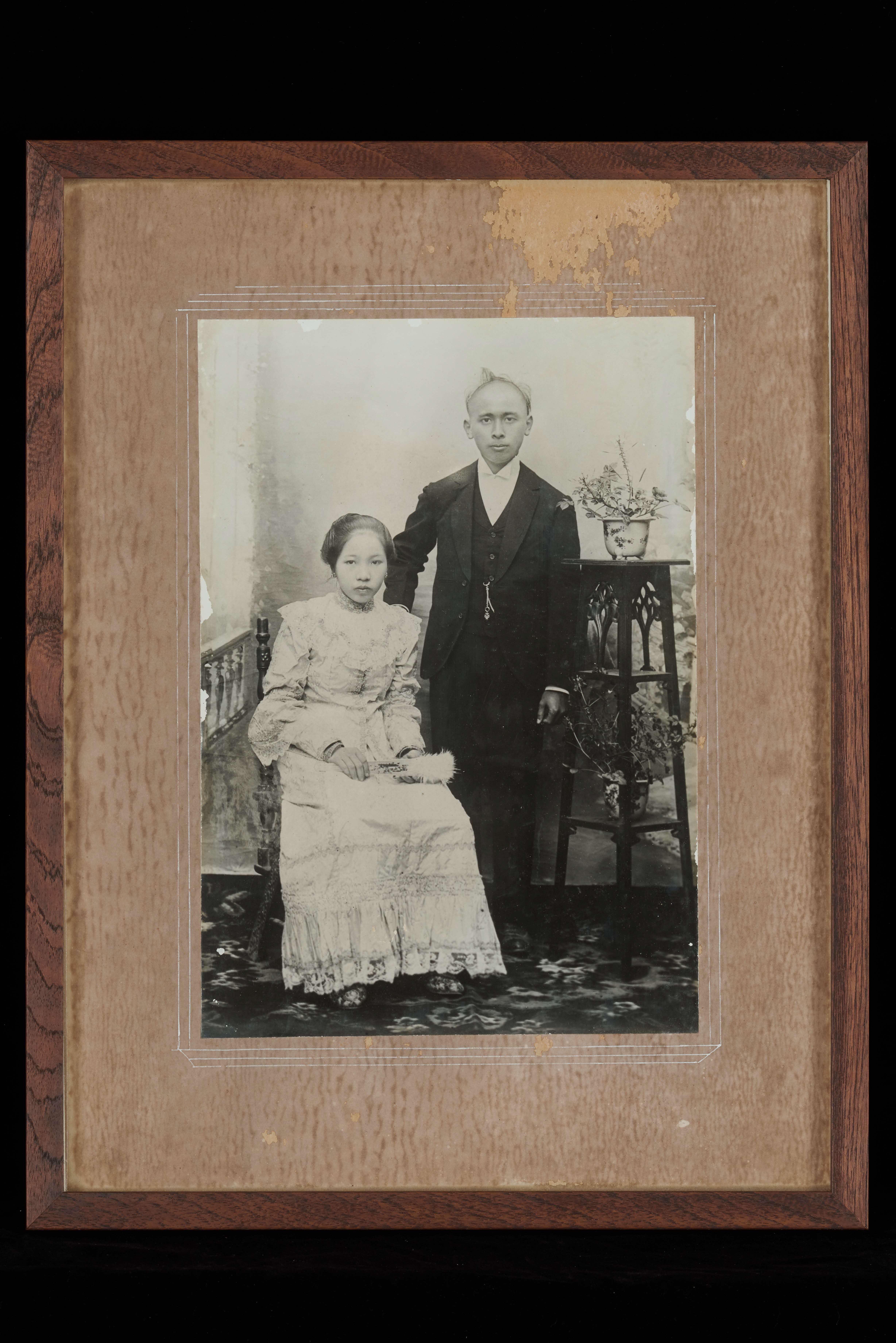A Legacy of Scents
|
Name of business: |
Jamal Kazura Aromatics |
|
Business location: |
728 North Bridge Road, Singapore 198696 |
|
Business type: |
Perfumery and Aromatics |
|
Established: |
1933 |
Starting out as a general trade store at Kampong Gelam in 1933, the business was known as Kazura Company and supplied Muslim products like books on Islam and items related to the Hajj pilgrimage. Today, Jamal Kazura Aromatics has earned the reputation of being the oldest homegrown perfume business in Singapore, selling minyak attar and unique in-house blends.
In the midst of bustling Bussorah Street, Jamal Kazura Aromatics occupies a white and blue shophouse embellished with gold markings. Duck your head under the blue awnings and you will discover that the shop’s exterior and interior are furnished with polished wood, giving the shop an exquisite and sophisticated look. From the moment you enter, you are greeted with a pleasant medley of scents. Gently lingering in the air is the woody smell of burning incense, mixed with hints of spice. At the same time, sweet, zesty, and earthy smells drift from perfume bottles with ornate designs. Yellow lights illuminate each bottle with a warm glow, creating an inviting, enthralling atmosphere. Located at 21 Bussorah Street, this shop is one of the three branches of the Jamal Kazura brand, the oldest homegrown perfume business that resides in Kampong Gelam.
The family business was founded by Mr Hanifa Kazura in 1933 and started out as a general trade store known as Kazura Company. When Mr Hanifa migrated from South India to Singapore, he saw a promising opportunity to start a business, due to Singapore’s status as a port city. The shop would be in a strategic position for traders like him, who needed to travel on a regular basis. Settling in Kampong Gelam, Mr Hanifa astutely picked up on the demand for Muslim products such as Islamic books, incense, and items for the Hajj pilgrimage. He would travel extensively to Asia and Europe to source for his products. The business flourished and established its presence in the precinct.
By the time Mr Hanifa’s son, Mr Jamal Kazura, took over the business in the mid-1970s, he had accumulated years of experience in the art of perfumery and decided that the business should specialise in the craft. Rebranding the family business as Jamal Kazura Aromatics, Mr Jamal focused on the sale of minyak attar, a non-alcoholic, oil-based perfume that is usually extracted from plants, as well as the production of unique in-house blends. Mr Jamal also came up with perfume recipes of his own, writing down each formula in a notebook. Today, Jamal Kazura Aromatics has three branches in Kampong Gelam, with its original shop residing in 728 North Bridge Road and its two other shops in 21 Bussorah Street and 39 Bussorah Street.
Mr Jamal’s son, Mr Samir Kazura, grew up in Kampong Gelam and is the third-generation owner of the business. During his teenage years, he learnt the tricks of the trade from his father, who would give him small tasks in the shop. His father would also put different combinations of scents on him to test how it would smell on the skin. It eventually gave him the title of the “perfume kid”, because he would go to school wearing the fragrances from the shop. Exposed to his father’s trade from a young age, he had ample time to familiarise himself with perfumery. He describes it as a balance between art and science. “It all comes down to how you train, how one trains the nose to be able to identify slight nuances like, you know, orange oil from Spain or orange oil from Morocco. Bulgarian rose versus Indian rose. There are different nuances,” Mr Samir says. “Being able to identify smells plays a huge part in this, in the sense that smell is a little bit more abstract than colour or sound. So, it's a bit more of an art, as far as I'm concerned. Still, it is also pure science,” Mr Samir concludes, referring to the chemical aspect of perfumery, which is equally important to understand. When Mr Samir completed his studies, he felt prepared to take on the family business and has been running it ever since 2012.
Mr Samir manages the backend of the business—dealing with partners, suppliers, and stakeholders. Following the footsteps of his grandfather, he travelled often to countries as far as Dubai to meet his business partners. With the lifting of COVID-19 travel restrictions in 2022, Mr Samir is eager to visit his partners again, saying, “I'd also want to ensure that what we are selling are from sustainable sources. I think it's not just a trend, but I think it's something that I personally feel passionate about. Instead of just taking the person's word, I like to go there and meet them and see how it's done.” Being able to ensure the quality and sustainability of his natural ingredients, such as oud (a woody fragrance often referred to as ‘liquid gold’ in the Middle East) and agarwood, is something that Mr Samir cares deeply about.
Mr Samir is also actively thinking of ways to modernise the business while retaining its authenticity. He is working with brand consultants and content producers to rebrand Jamal Kazura Aromatics and strives to strike a balance between attracting a wider audience and preserving the heritage of traditional perfumes. “So, this is like a very delicate play, you know, if we go too modern too fast, we might just end up losing our identity,” Mr Samir says. He is driven by the responsibility of carrying on the family legacy while celebrating its heritage and wants to do it right. He has created new blends inspired by present-day trends. One such scent is the Green Tea perfume, which gives off a clean, fresh smell, and has been popular among customers. Mr Samir is also looking forward to the development and growth of oud-based fragrance products under the Jamal Kazura Aromatics brand as this fragrance is starting to gain popularity globally.
Mr Samir takes after his father and grandfather with his enterprising spirit and earnest passion to keep the family trade alive. Jamal Kazura Aromatics is in good hands and will continue to go strong even as it approaches its ninth decade of operation.
Interviewed by Dewi Imelda Wadhwa and Nurfalah Sha’aban on 23 May 2022.















